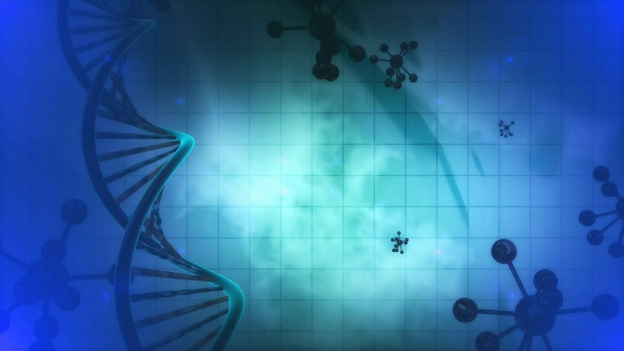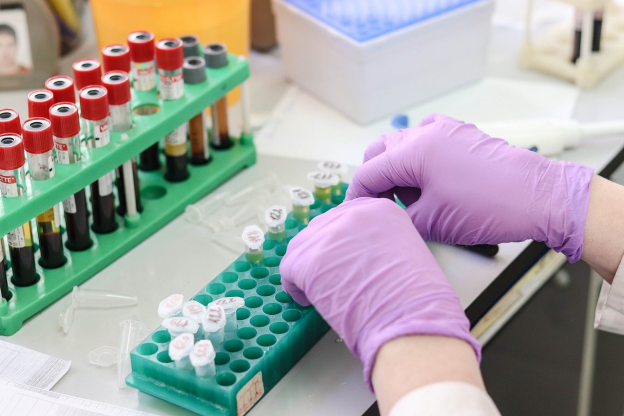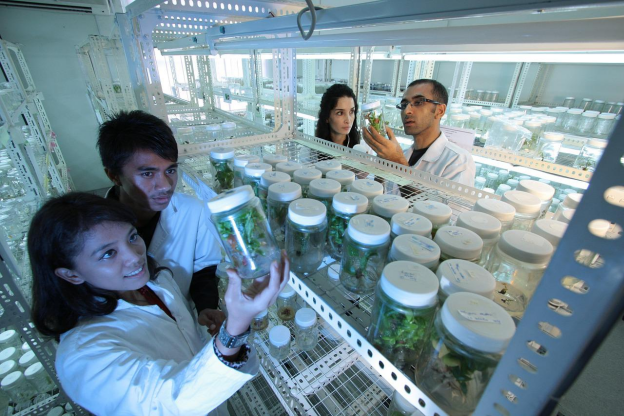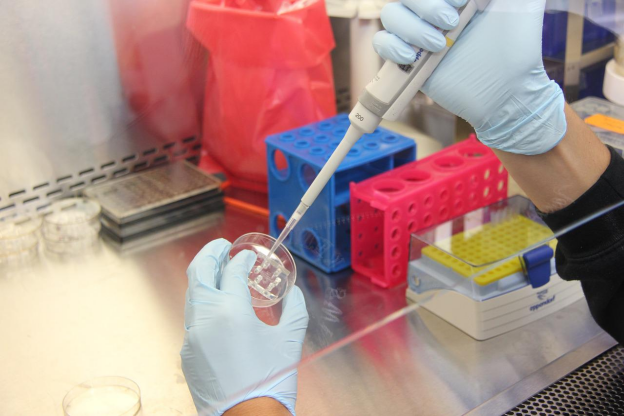7 Advantages of Custom Protein Production
Jul 8th 2022
Proteins facilitate most cellular functions, including gene expression, cell development, proliferation, nutrition uptake, intercellular communication, and death. Consequently, fundamental, applied, and clinical research seeks to comprehend how protein expression location, location, and interactions influence homeostasis and illness.

Numerous applications, like affinity purification, western blotting, and in vitro functional tests, contribute to understanding how proteins affect cellular function. Numerous of these strategies utilize custom-made or exogenously produced proteins. This blog will focus on
- The production of recombinant proteins and
- The benefits of employing recombinant proteins in proteomics research.
- The different applications for recombinant proteins.
Before diving into the deep end, let's review the actual meaning of custom protein, its role in custom protein production, and more.
What Are Custom Protein?
Custom proteins are recombinant proteins generated via custom manufacture instead of commercial production. However, one can wonder what recombinant proteins are. Recombinant proteins are those that have been created by cloning recombinant DNA into an expressional vector that allows the gene to be expressed and messenger RNA to be translated.
Using recombinant DNA technologies and custom DNA synthesis to alter a gene can produce a custom protein. Recombinant protein is a modified form of native protein produced in various methods to boost protein output, change gene sequences, and manufacture commercially viable goods. Continue reading to see how different kinds of protein are created.
What Exactly is Custom Protein Production?
Custom protein production is the application of in-depth knowledge and skill to develop, manufacture, and purify active proteins for specific research projects. This protein production method can help expedite your study without the disadvantages associated with the usage of recombinant proteins.
How Are Recombinant Proteins Produced?

The genetic process of recombinant protein production begins with the isolation and cloning of a protein's coding sequence into an expression plasmid vector. Despite being derived from humans, most therapeutic recombinant proteins are produced in a lab using bacteria, yeast, or animal cells. Human genes typically consist of noncoding DNA regions known as introns. This is why an intron-free form is commonly generated by turning the mRNA into cDNA.
Since the cDNA does not comprise regulatory regions, expression vectors include sequences that can serve as a promoter, ribosome-binding site, and terminator codon. For research purposes, recombinant proteins are primarily motivated by the procedure's cost-effectiveness, simplicity, speed, and appropriate product yields. For proteins to undergo post-translational changes, such as phosphorylation or glycosylation, eukaryotic expression systems are required.
Numerous recombinant proteins necessitate protein changes, such as glycosylation, which are exclusive to eukaryotic organisms. Yeast, an insect cell, and the cultures of mammalian cells are capable of post-translational transformations. Effective temporary transfection procedures have been developed within the past decade. Cell lines generated from HEK293 are utilized for the transient synthesis of proteins.
Currently, most recombinant therapeutic proteins are created in mammalian cells because these cells are capable of producing high-quality proteins comparable to those found in nature. Due to its well-defined genetics, rapid growth, and high-yield production, E.coli protein expression is also used to produce many authorized recombinant therapeutic proteins.
7 Key Advantages of Custom Proteins
1. Control Over Your Source
By choosing a personalized protein service provider, you know where and by whom your protein is manufactured and can tailor your quality control (QC). The manufacture of protein must meet your specifications, and you have the assurance that subsequent batches will adhere to the same procedure. Low inter-batch variability ensures manufacturing uniformity and reproducibility of your findings. In other words, how can you be sure that your current supply is genuinely the one producing and that the source will remain constant? Choosing a custom protein expression or antibody protein sequencing services will address these issues and alleviate your concerns.
2. Reproducible Biological Activity
Years of experience with a distinct source of production reduce batch-to-batch variation. There is no chance of supplier changes, a concern associated with OEM products. You avoid lengthy, costly, and time-consuming batch validations, and the situation worsens when the batch doesn't fit, and you have to discover and revalidate new suppliers. Proteins have not been subjected to biological testing. If you are not well informed, you risk investing time and resources in an antibody production service that will never meet your needs.
3. Save Money
The cost savings offered by custom manufacturers are enormous. If your activity requires large quantities of proteins, you will negotiate bulk pricing, but a custom batch is typically less expensive after the initial manufacture. In addition, production typically offers volume flexibility to meet rising demand at a lower cost. If you routinely purchase recombinant proteins, comparing your charges to those of a custom manufacturer may be helpful.
4. Offer More Feasibility/Flexibility to Your Project
How frequently have promising initiatives been abandoned due to expensive reagents? The standard recombinant manufacturing encounters this drawback regularly, but this isn't the case with solid-phase peptide synthesis protocol and custom production services. Here, you can have the ability to generate variants from a wild-type protein as your project progresses.
5. A Means for Biotherapeutic
The majority of human disorders are systemically or substantially linked to protein malfunction. Essential treatments for a range of conditions, including diabetes, cancer, infectious diseases, hemophilia, and anemia, are provided by therapeutic proteins. Antibodies, Fc fusion proteins, hormones, interleukins, enzymes, and anticoagulants are typical therapeutic proteins. Human proteins derived by genetic engineering play a crucial role in the market for medicinal drugs. The Hepatitis B vaccine prevents infection caused by all known subtypes of the Hepatitis B virus and is one of the several RP vaccines approved by the FDA.
6. Can Incorporate Unnatural Amino Acids
Recombinant proteins can incorporate unnatural amino acids, which are made certain through utilizing aminoacyl-tRNA synthetases. Unnatural amino acids can provide proteins with unusual features, such as increased enzyme activity or stability.
7. It doesn't Require Institutional Review Board (IRB)
IRB permission is required because acquiring natural human proteins requires human volunteers' cooperation. This results in an increase in paperwork and time spent waiting for documents to be authorized. However, this isn't the case with recombinant proteins, including those custom produced with custom antibody services.
Essential Applications of Custom Protein

1. Development of Antibodies
Hosts are repeatedly injected with pure protein to elicit essential and secondary immunological responses, which are then used to produce antibodies. Although the amount varies depending on the animal's size, 13 milligrams of protein are generally needed for antibody synthesis. For instance, mice only need about 0.5 mg of protein overall, whereas sheep and other large animals need about 4 mg.
The animal's blood is then taken while the isotype IgG levels reach their peak serological levels. However, peptide synthesis services can also offer peptides from samples instead of blood. A rec. protein contains more potential immunogenic sites than amino acid sequences representing the protein’s portion, which is a benefit.
2. Aptamer Production
Recombinant proteins are also used in aptamers or in vitro generated nucleic acid-specific antigens. Initially, most random RNA or DNA oligos get treated with recombinant protein. Then, the sequences that bind to the protein are gathered and amplified again. Negative selection can also be used at this stage to ensure the aptamer doesn’t interact with proteins identical to the specific target. The binding affinities of each aptamer are determined after sequencing the aptamers that bind to the target protein.
3. Western Blot Controls
Western blots are frequently used to assess a sample's presence and level of protein. To ensure western blotting processes are succeeding, recombinant proteins are utilized as a positive control. Such proteins are even used to confirm the protein's migratory pattern. For instance, the p53 protein migrates at 53 kDa while being 44 kDa in size (thus the name "p53"). A pure recombinant protein need not be used while it’s under control. Unpurified recombinant proteins do indeed cost less than pure proteins.
4. Protein Interactions
Recombinant proteins, either in solution or on a solid substrate, are used to analyze protein interactions along with several proteins or tiny molecules. These data may offer details about binding partners, binding affinities, or kinetics (SPR) using methods like isothermal calorimetry, immunoprecipitation, and plasmon resonance. Characterization of antibody specificity and protein changes during enzymatic processes is also possible.
For these functional experiments, it's crucial to know the recombinant proteins' fusion tags and expression system. For instance, the best tag might not be glutathione S-transferase. Its dimerization will influence the molarity and downstream binding kinetics and affinity in addition to enormous sizes (26 kDa), blocking target binding sites.
5. Standards for ELISA
The concentration of the protein-of-interest can be determined using the ELISA method (using ELISA test kits), which is an enzyme-linked immunosorbent assay. A technique like the bicinchoninic acid (BCA) assay is used first to quantify a pure recombinant protein. The recombinant protein is diluted to establish a standard curve and ascertain the precise protein concentration in the sample.
6. Antibody Profiling
The immunological reaction is reflected in antibodies. As a result, antibodies are biomarkers for several illnesses, comprising cancer, several sclerosis, and arthritis. Protein arrays enable antibody profiling, in which recombinant proteins obtained from protein production services are accommodated onto solid substrates in an arranged and addressable fashion. Typically, serum or plasma is used to probe protein arrays, which causes serological antibodies to attach to their particular antigen.
Another conjugated anti-human antigen is integrated by researchers to detect after the array has been washed to eliminate unbound antibodies. Then, antigen biomarkers are identified by contrasting the patterns between a sample group.
7. Cell Culture Experiments

In investigations involving cell culture, recombinant proteins are also used. They aid in determining whether a protein can resume signaling following the inhibition of that pathway. This can explain why a patient might resist targeted medicines (e.g., small molecule inhibitors). 19 Recombinant proteins can also aid in mapping the relative position of a protein in a signaling cascade (i.e., upstream, downstream). Delineating their native function in homeostasis and disease can be accomplished by contrasting the effects of wild-type and recombinant custom proteins on cellular phenotype.
8. Development of Vaccines
Vaccines that directly inject genetic material into a person's body use recombinant DNA and proprietary proteins. This genetic material comes from the foreign antigen that is the focus of the immunization and takes the form of a DNA loop called a plasmid. Our cells absorb the DNA once injected into our muscle tissue and start to manufacture the foreign proteins encoded in the plasmids.
These proteins support the immunological reactions that our bodies have to the specific antigen. DNA immunizations have the potential to be less expensive to produce, potentially safer, and theoretically more effective than current vaccination methods.
9. Drug Response Smart System
Drugs are often released using standard drug delivery techniques at a reasonably steady rate. On the contrary, smart systems use clever feedback mechanisms to have a therapeutic effect in response to stimuli or biomarkers. Protein engineering is used to alter and create the stimulus-responsive allosteric proteins required for intelligent response systems. Researchers use custom protein synthesis to add a novel domain demonstrating allosteric modulation. Introducing mutations inside an existing protein is another method of controlling allosteric proteins.
10. Targeted drug-neutralizing antidotes
Protein engineering is used to create enzymatic antidotes that neutralize medications or toxins in a targeted manner. These countermeasures concentrate on the treatment of drug abuse overdoses and addiction control. The alteration in human butyrylcholinesterase functions is one of the most notable examples. This enzyme hydrolyzes different choline-based esters. In this instance, protein engineering changes the variant's substrate selectivity, reducing its reactivity to its substrate and increasing its size by more than a thousand times compared to the original.
Conclusion
Biotechnology advancements have boosted and facilitated the manufacturing of recombinant proteins for various purposes. The significance of RP in basic life science research, diagnostic reagents, and medicinal pharmaceuticals have expanded dramatically. Their contribution to biotechnology is indispensable. You will need to locate a genuine and reputable bespoke protein synthesis business to gain the maximum benefits. Therefore, you should explore the services of Biomatik.

